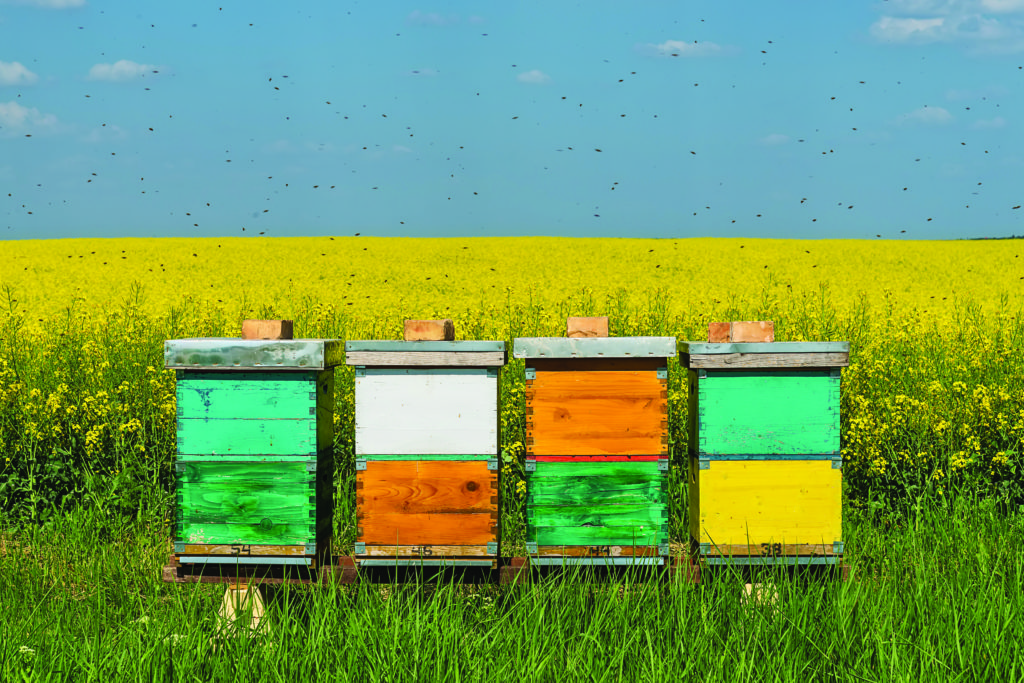
By Jim Servin
The call came through: “There’s a swarm in Sag Harbor,” and the person at the other end of the line wasn’t referring to a turnout for a documentary screening at the Bay Street Theater. Like a physician available around the clock on speed dial, Deborah Klughers, certified master beekeeper, will stop whatever she’s doing to help rescue honeybees—as many as 40,000 to a swarm.
The owner of Bonac Bees in East Hampton, Klughers manages over 100 hives on working farms and private residences across Long Island. “One family planted a ton of wildflowers along their golf course, and also set up bee-hives,” Klughers says. “They’ve got gorgeously manicured landscaping. Someone in the family knew that having bees would increase the beauty of the course. ”
In New York State, more than $300 million of agricultural crops are pollinated by honeybees, whose numbers are steeply declining—40 percent of the managed honeybee population died last year.
Swarms may look intimidating, but are mostly harmless. “They’ve separated from their hive, often due to over-crowding, taking up temporary residence on a tree branch or bush while sending out scout bees looking for a dry, dark cavity for relocation,” Klughers says. “They’ve eaten for their journey; their stomachs are filled with honey, so they are not aggressive. Defensive, but not aggressive—they are gentlest while in a swarm.”
How can we help the honeybees? Klughers offers Purist readers these tips: “Plant a linden tree. One large linden tree can give more forage to bees than a whole acre of wildflowers. Plant flowers and trees that bloom in late summer, since there’s what we call a dearth for them—very little in nature for the bees to forage on. Hire only organic landscape companies. Donate to bona fide bee researchers, like the American Beekeeping Federation (abfnet.org).”
The honeybees’ two worst enemies, says Klughers, are “fear and ignorance.” She has posted an online petition (which has so far netted 4,500 signatures) which makes it a crime to kill or poison a swarm of honeybees. The movement has gained momentum, and Klughers reports that the legislation will go before the New York State Assembly this January. “Having a law in place will make people more aware of the need to protect honeybees,” she says. “The more aware people are, they more they will understand how right this is, and necessary.” Click here to learn more about her petition to save the bees. bonacbees.com





